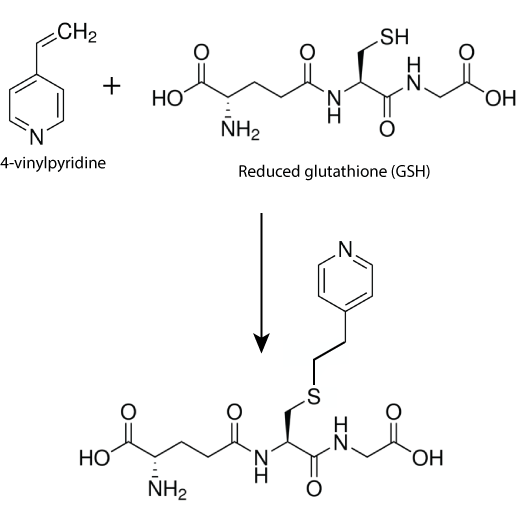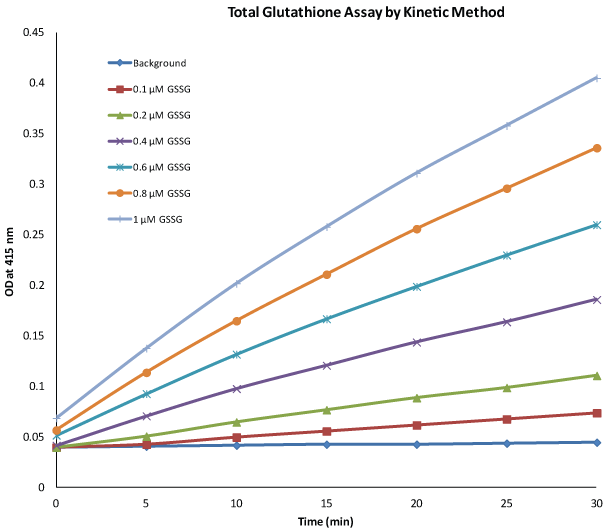4-Vinylpyridine as a derivatizing agent for free thiols and its application in Glutathione assay
Glutathione assay involves quantification of reduced Glutathione (GSH) and Oxidized Glutathione (GSSG) in various organisms or in various tissues, blood samples, plasma, serum or cultured cells. Free thiols such as GSH can be detected by their property of relatively high reactivity compared to other biological molecules. On contrary disulfides such as GSSG does not have any unique property that could be exploited for its quantification. Hence Glutathione disulfide (GSSG) quantification can be done after reducing it to its corresponding thiol (GSH). Thus the most widely adopted methodology for quantification of GSH and GSSG is determination of total GSH concentration, followed by alkylation to remove GSH and then reduction of GSSG and its quantification. GSH concentration in sample can be determined by subtracting glutathione disulfide concentration from total glutathione concentration.








